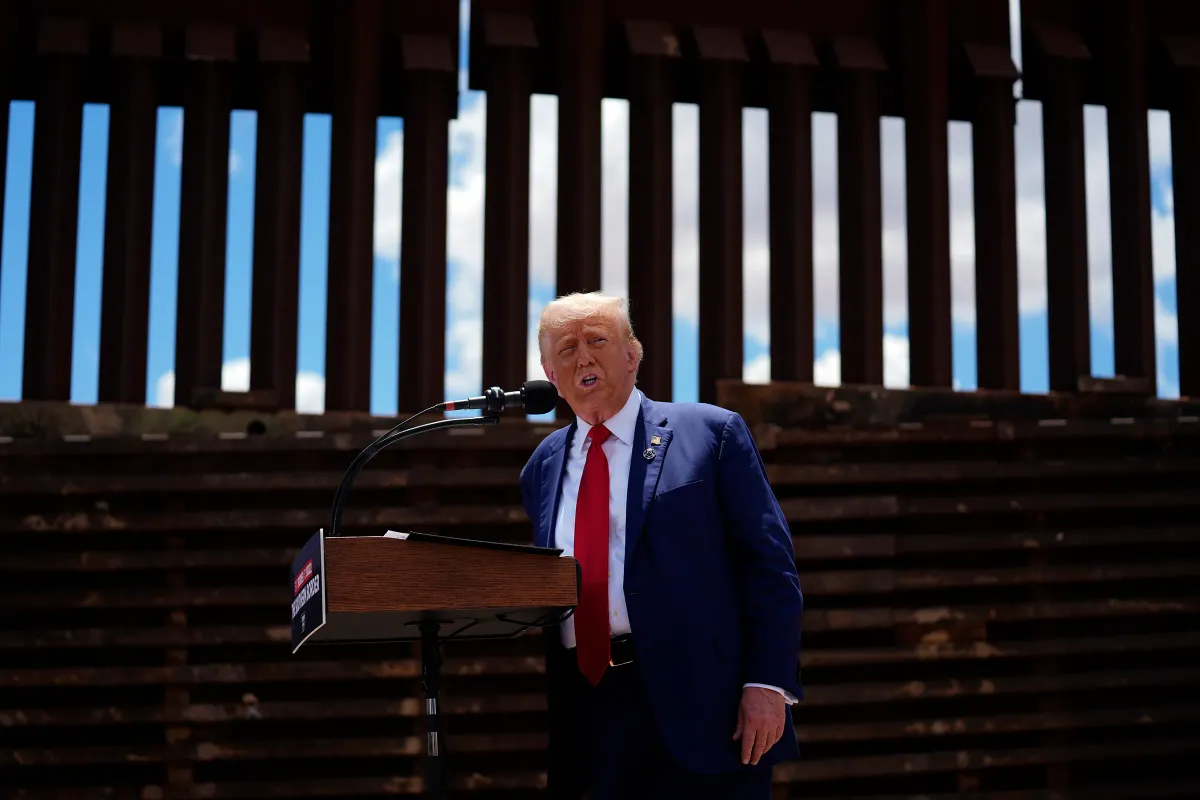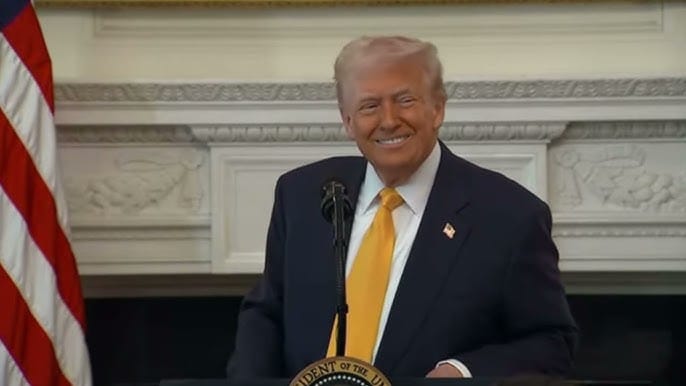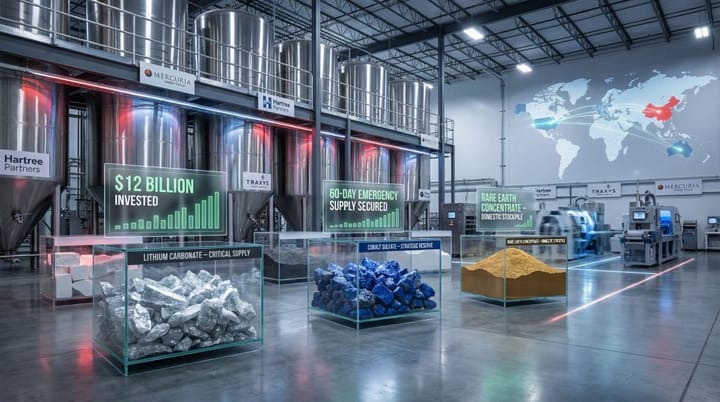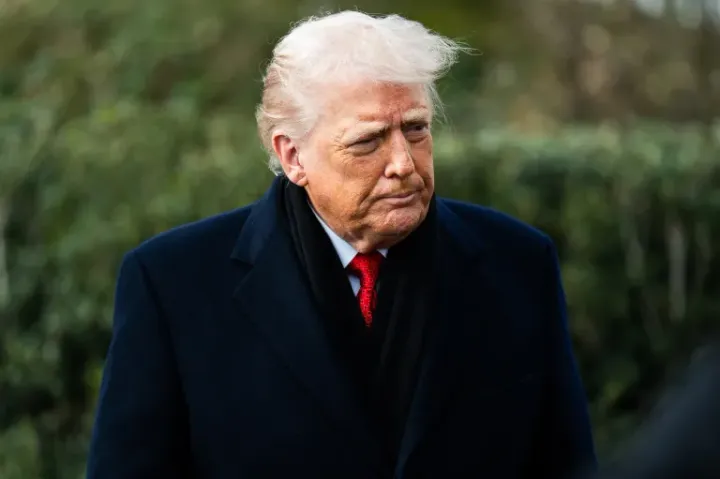Trump to Make Immigration ‘Easier’ While Cracking Down on Illegal Residents: What His Plan Means for Immigrants
President-elect Donald Trump has unveiled his immigration plans, focusing on mass deportation of illegal immigrants and making it easier for legal entrants. Could his approach help Indians and international students?

Trump’s New Immigration Vision: Tough on Illegals, But Easier for Legal Entrants
As the countdown to his inauguration begins, President-elect Donald Trump has outlined his ambitious plans to overhaul the U.S. immigration system. While his proposals have sparked controversy, they also offer potential benefits for those seeking legal entry into the country—especially for countries like India, with large numbers of international students and workers.
In a recent interview with NBC News, Trump reaffirmed his stance on tackling illegal immigration by prioritizing the deportation of criminals and those entering the U.S. unlawfully. However, he also revealed his intention to simplify the process for those who meet specific criteria for legal entry, signaling a shift that could benefit immigrants seeking to live and work in America.
A Hardline Approach on Illegal Immigration
Trump’s approach centers on quickly and efficiently deporting those who are in the U.S. illegally. "We have to do it," he said, emphasizing the need to enforce laws on illegal immigration. His administration is poised to prioritize criminals, particularly those involved in violent gangs like MS-13 and other international criminal organizations.
The President-elect stressed that the process would begin with individuals who have committed serious crimes, including murder, assault, and other violent acts. "People who have been released from jails, or have been convicted of crimes like murder, are walking next to you and your family," Trump warned, making it clear that such individuals would be the first to face deportation.
Moreover, Trump pointed to a troubling statistic: over 13,000 individuals convicted of murder had been released into the U.S. over the past few years. "We don't want those people in this country," he stated, asserting that deportation of criminals was non-negotiable.
The President-elect also mentioned that anyone who had been released from mental institutions should be returned to their home country, regardless of their nationality, underlining his administration's aggressive stance on deporting dangerous individuals.
A Path to Easier Legal Immigration?
While Trump’s plan includes a heavy focus on deportation, he also made it clear that he aims to make legal immigration simpler for those who meet certain requirements. In particular, he expressed his desire to streamline the process for those who genuinely want to contribute to American society.
“We are going to make it very easy for people to come in, but they have to pass a basic test,” Trump explained. The test would require immigrants to demonstrate knowledge about American history, culture, and the Statue of Liberty. Furthermore, applicants must prove their love for the country and willingness to contribute positively to society.
For many international workers, particularly skilled professionals from countries like India, this could mean a more straightforward path to obtaining a U.S. visa. Trump's focus on merit-based immigration aligns with his administration’s efforts to prioritize highly skilled workers who can fill critical roles in the American economy.
The ‘Dreamers’ Debate: A Delicate Issue
One of the most contentious issues in Trump’s immigration policy is the fate of the "Dreamers"—young immigrants brought to the U.S. as children. While some view the Dreamers as victims of their circumstances, Trump acknowledged that a solution must be found.
“We're going to do something about the Dreamers,” Trump said, noting that many of them, now adults, have integrated into American society and are thriving in the workforce. “They’ve done well in life,” Trump added, pointing out that many Dreamers have achieved great jobs and success in the U.S.
However, Trump emphasized that any solution would need to strike a balance between compassion and security, and that it would require cooperation from both Democrats and Republicans to address this issue fairly.
While many immigrants fear the possibility of mass deportation under Trump’s administration, his remarks about legal immigration have offered hope to those who meet the necessary qualifications. The U.S. tech sector, particularly, could see a significant influx of skilled professionals, as Trump’s policies would prioritize high-value immigrants who can contribute to the economy.
A Concern for International Students
Trump’s immigration plans also raise concerns for international students currently studying in the U.S., especially those from countries like India. With his administration prioritizing the deportation of illegal immigrants, many international students worry about the future of their student visas, work permits, and ability to stay in the U.S.
Trump’s nominee for “border czar,” Tom Homan, a hardline anti-immigration figure, has fueled these concerns. With many universities advising international students to return to their campuses, uncertainty remains around the future of work opportunities for graduates and long-term residency for foreign professionals.
The Road Ahead: Uncertain but Optimistic for Legal Immigrants
As Trump prepares to take office, it remains to be seen how his administration will balance the mass deportation plan with efforts to ease legal immigration. While his strong stance on criminal deportation has many worried, the focus on merit-based immigration and simplifying legal entry procedures could open new doors for skilled workers and professionals.
For countries like India, this could mean more opportunities for qualified workers to immigrate to the U.S., especially if they can meet the criteria set by the new administration. However, the path ahead remains uncertain for many international students and workers who are concerned about the broader implications of Trump’s immigration policies.
As Trump continues to shape his policy agenda ahead of his January inauguration, it’s clear that immigration will remain one of the most pressing issues in American politics. Whether his approach leads to a more streamlined, security-focused system or stirs further divisions will depend on how the policies are implemented in the months to come.



